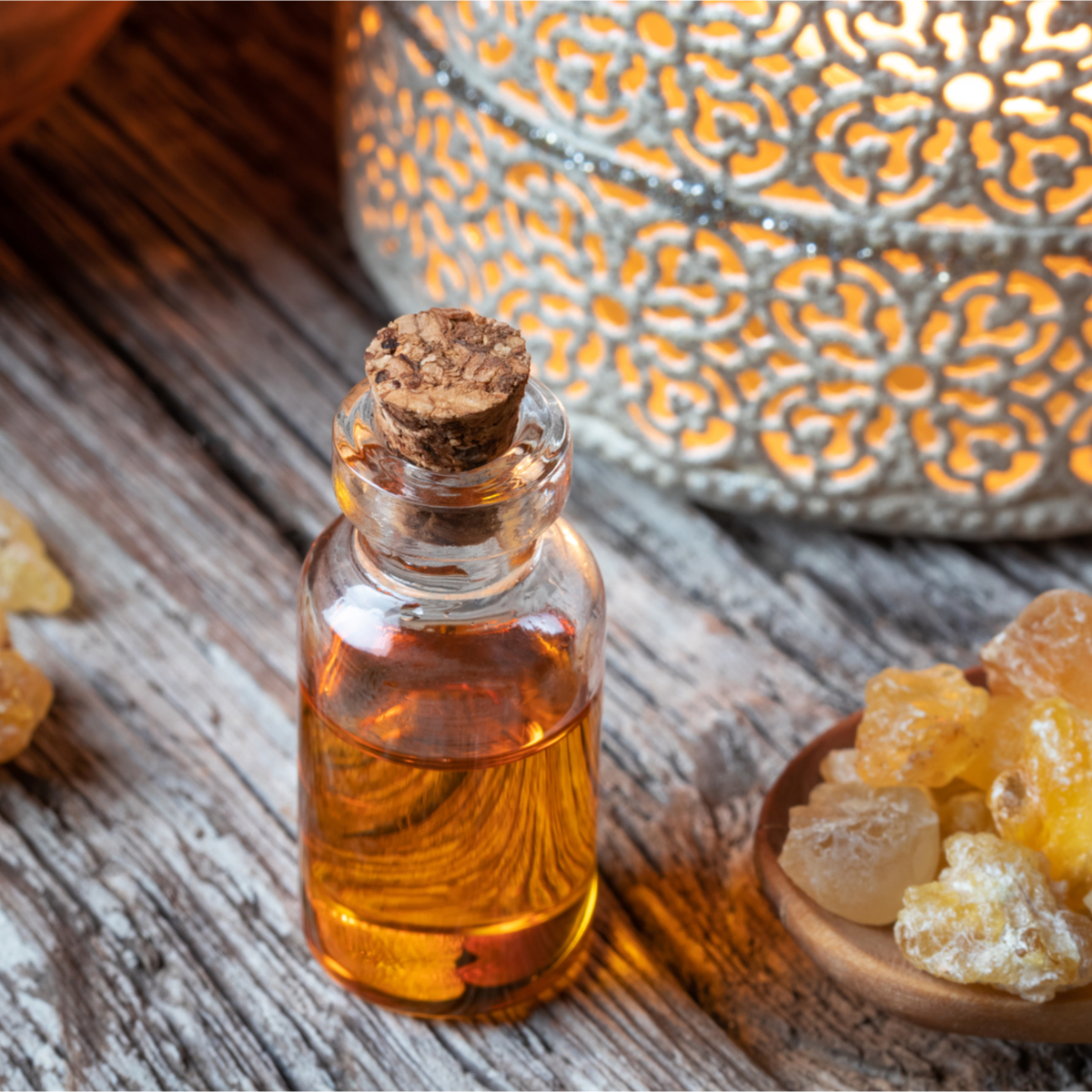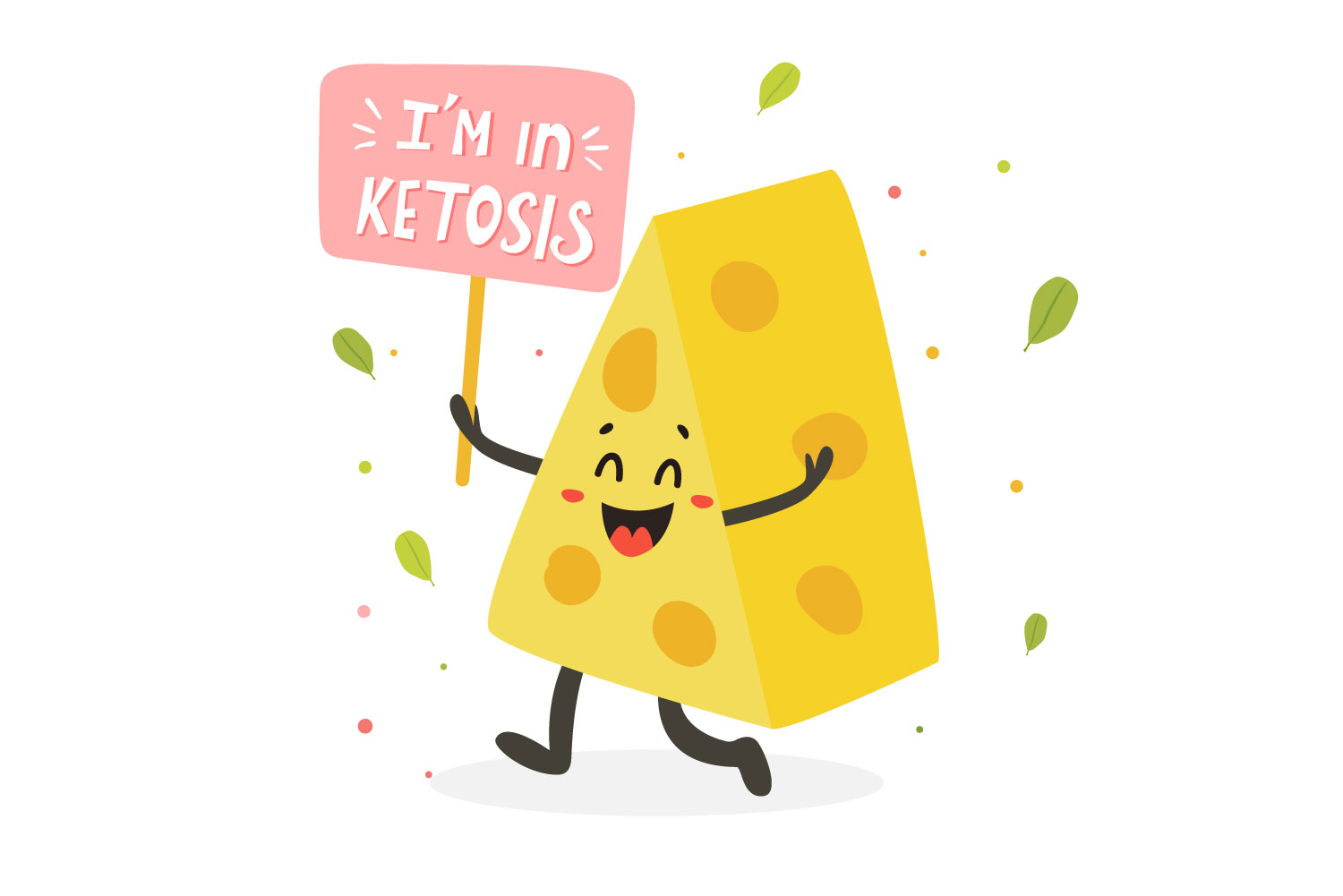SUMMARY
What is frankincense capable of doing for your health? Studies show frankincense benefits the treatment of certain types of cancer. It also works hard to bolster gut wellness.
Frankincense has long been revered for its healing properties, and it has a history that dates back to biblical times.
Various extracts are available that are based on its resin. And its resin is used to make frankincense essential oil, a substance with therapeutic qualities that support wellness.
Research shows that frankincense benefits health in notable ways. Frankincense resin contains substances that fight cancer. And frankincense essential oil benefits inflammation in ways that make it a good treatment for conditions such as arthritis.
What is frankincense good for, and does it deserve a place in your health protocol?
In this article, we will:
- Share some basic facts regarding frankincense
- Offer background on frankincense essential oil and explain how to integrate it into your daily routine
- Share facts regarding boswellic acid, a compound found in frankincense
- List key frankincense benefits
- Offer insight on how to use frankincense
What is frankincense?

Frankincense — also known as olibanum — originates from Africa, India and the Middle East. It’s sourced from frankincense trees. There are different species of frankincense trees, but all are part of the genus Boswellia.
To obtain frankincense, gum resin must be taken from the Boswellia tree. The tree trunk is cut, and gum is extracted. The gum has a milk-like appearance, and it eventually hardens into the resin known as frankincense. This resin is orange-brown in color.
Frankincense resin can be quite diverse, due to variations in soil and climate. These differences can be evident even in resin that comes from the same species of frankincense tree.
After the resin has been extracted, frankincense oil can be created. To extract this essential oil, frankincense resin typically undergoes a process of distillation. Frankincense essential oil benefits health in ways that have made it a popular choice in aromatherapy treatments.
For centuries, frankincense has been valued for its unique fragrance. Ancient Egyptians used it for healing, and it was a staple part of their religious rituals. It’s been used as a fumigant and as a key ingredient in incense and perfumes.
In more recent times, scientific studies have shown that frankincense benefits certain chronic health conditions. This applies to extracts made from the resin, as well as frankincense essential oil.
Types of frankincense
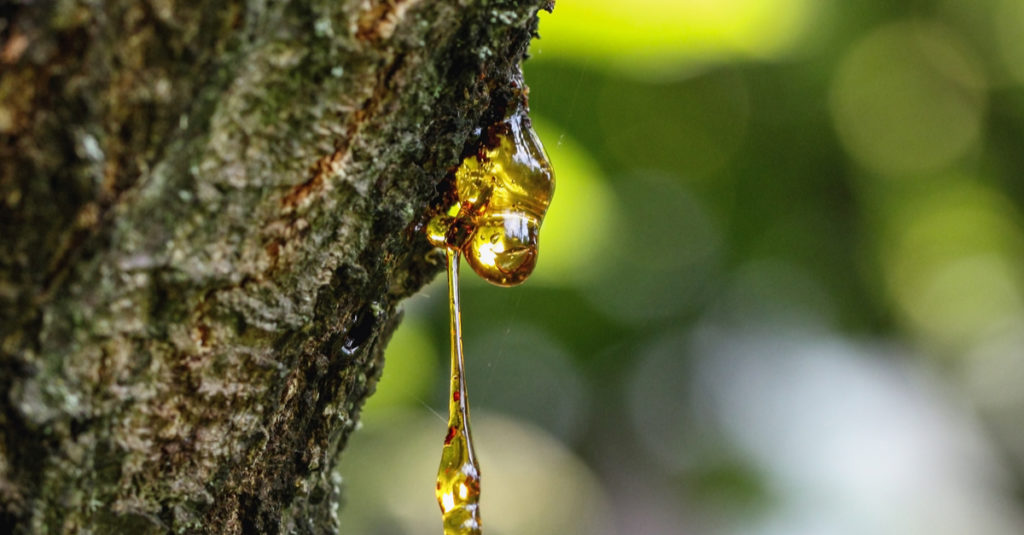
When it comes to diversity, what is frankincense able to offer? There are different species and varieties of frankincense trees, so you have a few alternatives to consider.
Frankincense trees vary from location to location. Each species produces a unique type of resin that differs in terms of its fragrance and the compounds it contains.
Here are some examples of the different types of frankincense:
- Boswellia serrata (also known as Frankincense serrata or Indian frankincense) – grown in India
- Boswellia carterii (also known as Boswellia carteri or Frankincense carterii) – grown in China and East Africa
- Boswellia frereana (also known as Frankincense frereana) – grown in Somalia
- Boswellia sacra (also known as Frankincense sacra) – grown in the Middle East
What is frankincense essential oil, and what is it used for?
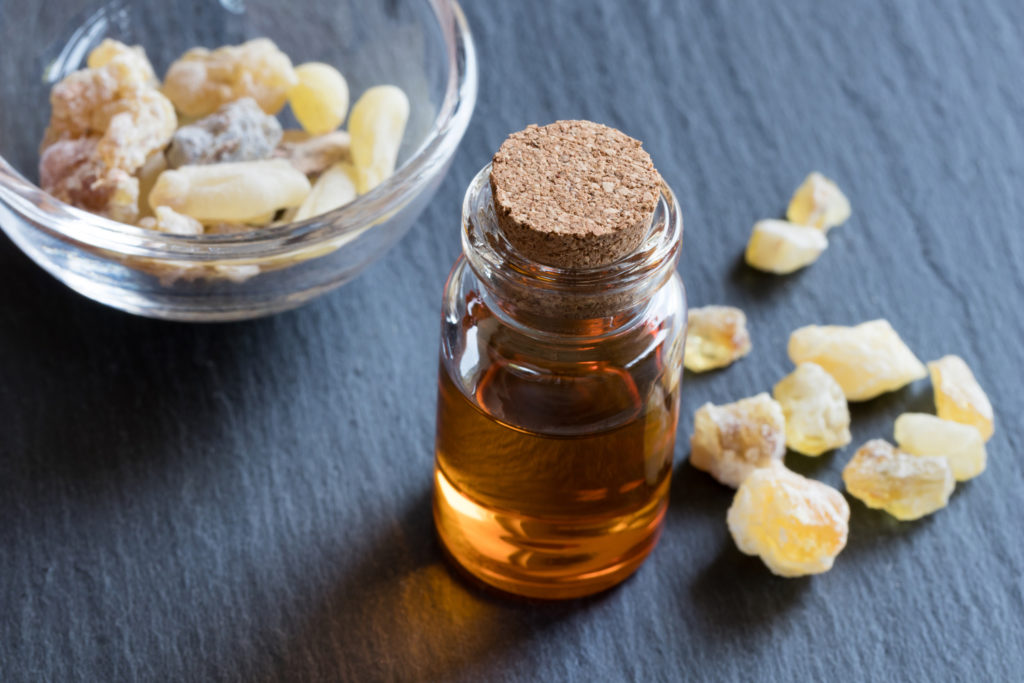
We’ve mentioned that frankincense resin is often distilled to create an essential oil. So, what is frankincense essential oil? And how is frankincense oil used in everyday life?
Essential oils are compounds that are taken from plants. These oils are said to capture the plant’s signature aroma and its basic essence. In many cases, they’re created via distillation. Essential oils can also be obtained via cold pressing.
Frankincense oil contains many of the compounds that make frankincense resin a potent health ally. As such, frankincense essential oil benefits wellness in tangible ways.
Let’s take a look at some of the ways in which frankincense essential oil can be incorporated into your daily routine:
- Frankincense oil is a powerful antiseptic. Many household cleaners contain toxic ingredients that can harm your health over time. If you’re looking for a natural and healthy alternative, try one made with frankincense oil.
- Its antiseptic properties also make frankincense oil a solid addition to your oral health regimen. Certain commercial oral care products contain frankincense. You can also make your own DIY toothpaste by combining frankincense oil with baking soda.
- Finally, frankincense oil can be applied topically as a skin treatment. Studies show frankincense essential oil assists with wound healing and may decrease the appearance of scars. To create a DIY skin treatment, mix two or three drops of frankincense essential oil with an unscented lotion or carrier oil such as coconut oil.
What is boswellic acid?
Boswellic acid is a compound that’s found in frankincense. Many potent frankincense benefits are directly attributable to the presence of boswellic acid.
This acid is actually a series of pentacyclic triterpene molecules. It can be isolated from the gum resin of the frankincense tree.
Boswellic acid is a phytochemical that possesses tremendous antioxidant activity. Many chronic conditions — such as diabetes, cancer and heart disease — stem from the overproduction of oxidants. Boswellic acid has been used to treat these conditions. It’s able to provide relief because it addresses the excessive oxidation that’s at the heart of these ailments.
Not surprisingly, boswellic acid is one of the most commonly used components in conventional Ayurvedic medicine. It’s been used to effectively treat a host of inflammatory, gastrointestinal, hormonal and microbial diseases.
Frankincense benefits

So, what is frankincense capable of doing for your health?
Frankincense benefits wellness, and that’s true whether you choose the resin or the essential oil.
Here are some key health benefits of frankincense:
Frankincense benefit #1: Helps treat arthritis
Conditions such as osteoarthritis and rheumatoid arthritis can cause painful joint inflammation. Frankincense benefits arthritis by easing inflammation.
Leukotrienes are compounds that cause inflammation. Studies show that frankincense can stop leukotrienes from being released by the body. Frankincense is able to pull this off because it contains anti-inflammatory compounds such as terpenes and boswellic acid.
In a 2018 meta-analysis, frankincense was shown to be more effective than a placebo for pain relief and functional improvement when treating patients with osteoarthritis.
And in a 2003 study, participants were given frankincense extract to treat osteoarthritis in the knees. All patients who received the frankincense reported a decrease in joint pain, increased knee mobility and increased walking distance.
Frankincense benefit #2: Combats cancer

The boswellic acids found in frankincense have anti-cancer properties. Because of this, frankincense benefits the treatment of certain types of cancer.
A 2013 study looked at the anticancer activities of two essential oils: frankincense and myrrh. The research showed that both these oils have qualities that help fight cancer cells.
Test-tube studies show that frankincense essential oil benefits these types of cancers:
And in a 2011 study, frankincense helped reduce the occurrence of cerebral edema in those wrestling with brain cancer.
Frankincense benefit #3: Supports oral health
What is frankincense good for when it comes to oral health and hygiene? Thanks to the boswellic acid it contains, frankincense is an effective antibacterial. Studies show it can help treat and prevent oral infections.
In 2016 research, frankincense was effective at stopping the growth of a pathogen that causes aggressive gum disease.
Frankincense benefit #4: Treats asthma

In traditional medicine, frankincense has been used as a treatment for asthma and bronchitis for generations. Modern research indicates frankincense benefits both those conditions in tangible ways.
A 1998 study looked at people with asthma who experienced symptoms such as wheezing and shortness of breath. After receiving 300 mg of frankincense three times daily for six weeks, 70 percent of those in this study reported a diminishment of their asthma symptoms.
And a 2012 study examined people with chronic asthma. Participants who received a daily dose of frankincense reported improved lung capacity and fewer asthma attacks.
Frankincense benefit #5: Supports gut health
Frankincense benefits gut health. This makes sense, given its antibacterial properties.
In a 2001 study, frankincense was as effective as mesalazine — a popular drug therapy — in treating Crohn’s disease.
And in a 2001 study, frankincense was just as effective as a pharmaceutical drug in treating chronic ulcerative colitis.
Frankincense benefit #6: Supports healthy skin

Frankincense oil is an ingredient in some high-end skincare lines. What is frankincense capable of doing for your skin? Research shows frankincense essential oil benefits skin care in valuable ways.
A 2017 study shows that frankincense essential oil influences pathways that are related to skin inflammation, immune response and skin tissue remodeling. This activity suggests that frankincense oil benefits the appearance of the skin. It supports healing and can help minimize scarring.
Furthermore, studies show frankincense essential oil can help suppress skin cancer. In 2019 research, frankincense oil had a beneficial effect on skin cancer cells.
How to use frankincense
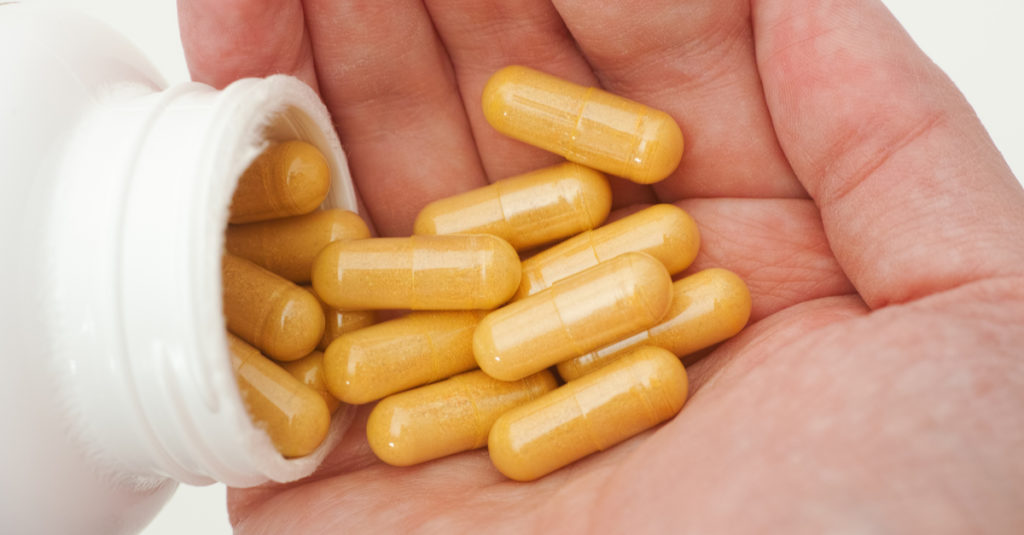
When it comes to using frankincense, you have a couple of options to consider:
- Inhale it using frankincense essential oil
- Apply it topically using a skin treatment that includes frankincense essential oil
- Ingest it using a dietary supplement made from frankincense resin
If you’re taking frankincense as a dietary supplement, know that dosage depends on the condition being treated. Typical frankincense dosages range from 300-3,600 mg per day.
When purchasing frankincense essential oil for therapeutic use, quality matters. Choose a supplier who does their own distilling or works with qualified distillers. If you’re using pure frankincense oil, that should be the only ingredient listed on the bottle. If a carrier oil such as coconut oil or jojoba oil is listed, then the essential oil has been diluted.
Next steps
Are you ready to get some firsthand experience on the ways in which frankincense benefits your health journey? Whether you choose the essential oil or the dietary supplement, give this ancient remedy a try to see what it does for you.
The core part of a healthy lifestyle is a nourishing diet. Subscribe to Fresh N Lean to get nutritious, chef-prepared meals delivered to your door. Our meal plans range from paleo to keto.
Fresh N Lean is the nation’s largest organic meal delivery service. Our tasty, chef-prepared cuisine is always fresh and never frozen, and we offer convenient meal plans like Protein+, Keto, Paleo, Standard Vegan and Mediterranean. Choose Fresh N Lean for affordable nutrition, delivered to your doorstep.
